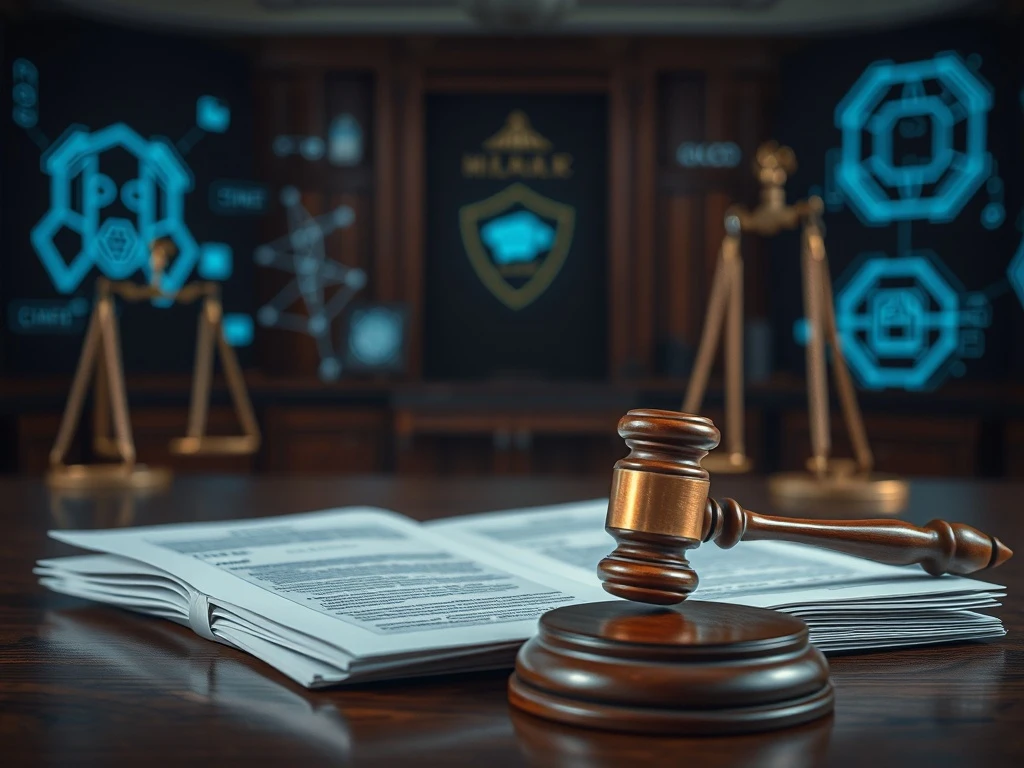The artificial intelligence industry faces a dramatic legal showdown as Scale AI files a groundbreaking lawsuit against former employee Eugene Ling and rival company Mercor, alleging systematic theft of confidential customer strategies and proprietary information in what could become a landmark case for AI trade secret protection.
Scale AI Lawsuit Details and Allegations
Scale AI initiated legal proceedings on Wednesday, claiming former sales employee Eugene Ling stole over 100 confidential documents before joining competitor Mercor. The Scale AI lawsuit specifically alleges misappropriation of trade secrets and breach of contract. According to court documents, Ling allegedly accessed sensitive customer strategies and proprietary information that could significantly benefit Mercor in competing for Scale’s largest clients.
Key Allegations in the Scale AI Lawsuit
The Scale AI lawsuit presents several serious accusations:
- Document theft involving 100+ confidential files
- Customer targeting of Scale’s largest client, referred to as “Customer A”
- Pre-departure solicitation while still employed at Scale
- Refusal to cooperate with Scale’s investigation demands
Mercor’s Response to Scale AI Lawsuit
Mercor co-founder Surya Midha denies the core allegations in the Scale AI lawsuit while acknowledging Ling possessed some old documents. Midha stated: “We have no interest in any of Scale’s trade secrets and are intentionally running our business differently.” The company claims it reached out to Scale six days before the lawsuit offering resolution options.
Business Impact of Scale AI Lawsuit
The Scale AI lawsuit highlights the intense competition in the AI data training market. With contracts worth millions at stake, the outcome could significantly affect both companies’ market positions. Interestingly, despite Meta’s $14.3 billion investment in Scale, Meta’s AI superintelligence unit continues using Mercor’s services, indicating complex competitive dynamics.
Industry Implications of Scale AI Lawsuit
This Scale AI lawsuit could set important precedents for:
- Trade secret protection in AI industry
- Employee mobility between competitors
- Customer relationship ownership rights
- Data security protocols for sensitive information
Frequently Asked Questions
What specific documents does the Scale AI lawsuit claim were stolen?
The lawsuit alleges Eugene Ling took over 100 confidential documents containing customer strategies, proprietary information, and specific data that would help Mercor serve Scale’s most important clients, including the mysterious “Customer A.”
How has Mercor responded to the allegations?
Mercor denies using any Scale data but admits Ling may have possessed old documents in a personal Google Drive. The company claims it never accessed these files and offered to have them destroyed before the lawsuit was filed.
What potential damages could this Scale AI lawsuit involve?
While specific figures aren’t disclosed, the lawsuit mentions that winning “Customer A” would represent a contract “worth millions of dollars to Mercor,” suggesting significant financial stakes in the case.
How might this affect the competitive landscape in AI data training?
The outcome could influence how AI companies protect intellectual property, hire from competitors, and secure customer relationships in this rapidly growing, highly competitive industry.
What is the significance of Meta’s involvement mentioned in the context?
Despite Meta’s massive investment in Scale, its AI unit continues using Mercor’s services, demonstrating the complex competitive dynamics and suggesting that customer choices aren’t solely determined by ownership relationships.
What are the next legal steps in this Scale AI lawsuit?
The case will proceed through discovery, where both parties will exchange evidence. Scale will need to prove actual misuse of its trade secrets, while Mercor will likely argue the information wasn’t actually secret or wasn’t used.








